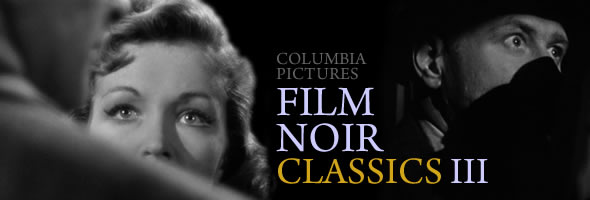
THE MOB DRIVE A CROOKED ROAD TIGHT SPOT THE BURGLAR
MY NAME IS JULIA ROSS
B&W, 1945, 64m.
Directed by Joseph H. Lewis
Starring Nina Foch, Dame May Whitty, George Macready, Roland Varno, Anita Bolster
B&W, 1951, 86m.
Directed by Robert Parrish
Starring Broderick Crawford, Betty Buehler, Richard Kiley, Otto Hulett, Matt Crowley
B&W, 1954, 83m.
Directed by Richard Quine
Starring Mickey Rooney, Dianne Foster, Kevin McCarthy, Jack Kelly, Jerry Paris
B&W, 1955, 96m.
Directed by Phil Karlson
Starring Ginger Rogers, Edward G. Robinson, Brian Keith, Lucy Marlow, Lorne Green
B&W, 1957, 90m.
Directed by Paul Wendkos
Starring Dan Duryea, Jayne Mansfield, Martha Vickers, Peter Capell, Mickey Shaughnessy
Turner Classic Movies / Sony
(US R1 NTSC) / WS (1.85:1) (16:9) and Full Frame
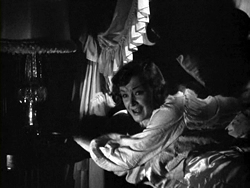 The flood of classic films on DVD has yielded some real discoveries over the past decade, and no film style has benefited more than film noir. This distinctly American approach to dramas and thrillers featuring femmes fatales, stylized lighting, and fatalistic storylines has flourished since the '70s, and most studios have dug deep into their vaults for odd little gems previously lost to rare after hours screenings on TV. Columbia Pictures released a particularly fascinating set of titles, since their first knockout boxed set of Sony noir titles in 2009, followed by a second set one year later and a pair of oddball Bad Girls of Film Noir four-film collections. After a brief lull, they finally returned with a third official box of classics, this one sold and released under the Turner Classic Movies banner. Interestingly, all five films are a little outside of what one usually expects from the noir label; some are indisputably crime films and many of the visual ingredients are present, but there's a unique wrinkle to all of them that makes this outside the usual parade of killer dames and gun-toting saps.
The flood of classic films on DVD has yielded some real discoveries over the past decade, and no film style has benefited more than film noir. This distinctly American approach to dramas and thrillers featuring femmes fatales, stylized lighting, and fatalistic storylines has flourished since the '70s, and most studios have dug deep into their vaults for odd little gems previously lost to rare after hours screenings on TV. Columbia Pictures released a particularly fascinating set of titles, since their first knockout boxed set of Sony noir titles in 2009, followed by a second set one year later and a pair of oddball Bad Girls of Film Noir four-film collections. After a brief lull, they finally returned with a third official box of classics, this one sold and released under the Turner Classic Movies banner. Interestingly, all five films are a little outside of what one usually expects from the noir label; some are indisputably crime films and many of the visual ingredients are present, but there's a unique wrinkle to all of them that makes this outside the usual parade of killer dames and gun-toting saps.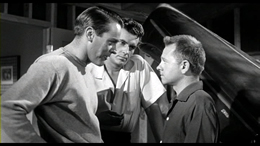 Sony's black-and-white offerings on DVD. Extras are the same here as above except for the absence of the TCM database article.
Sony's black-and-white offerings on DVD. Extras are the same here as above except for the absence of the TCM database article.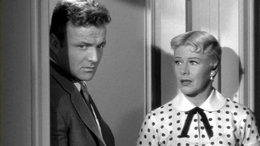
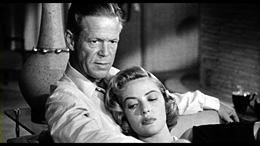 pressive new anamorphic transfer, and it looks mavelous throughout. The same gallery variations are included here, and the energetic theatrical trailer is a bit curious as it promises a film "tense with suspense" and "long, loud, low-down laughs!" Well, yeah, Brian Keith has a few fun zingers, but...
pressive new anamorphic transfer, and it looks mavelous throughout. The same gallery variations are included here, and the energetic theatrical trailer is a bit curious as it promises a film "tense with suspense" and "long, loud, low-down laughs!" Well, yeah, Brian Keith has a few fun zingers, but...